Ray Bradbury shares his secrets for how he wrote so many unforgettable short stories in the first two chapters of his craft book, Zen in the Art of Writing. In today’s episode we discuss his strategy to be engaged in both the ideas and the process of writing. We also unpack his technique to mine his subconscious for story ideas (and explain why so many of Bradbury’s titles were simple nouns.) We invite you to join us as we dive into this phenomenal craft book.
The Writing Activity
We’re using Bradbury’s method to tap into our subconscious to generate stories. Start with a blank page and fill it with nouns. Now take one of these nouns and write a prose-poetry-essay (basically a focused free write) on it to try to figure out what the word means to you and what it might mean in a story. Confused? Don’t worry, we discuss the technique and results in depth in the episode.
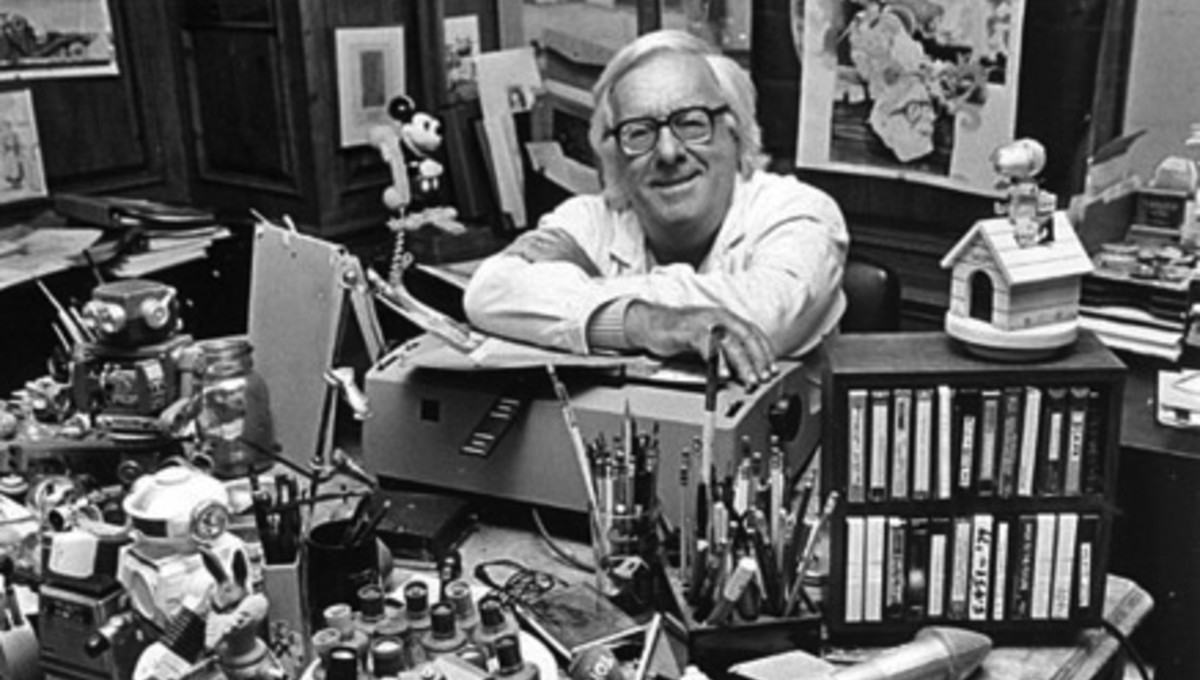
Drink - er- Write Everyday
Bradbury advises to write everyday to “stay drunk on writing,” because writing shows us the truth of life and reality. He also says to write like a lizard, because they are fast. (Renee checked 23&Me and can confirm she is 0.01% part lizard).
Chapter 1: The Joy of Writing
Zest & Gusto
Zest and Gusto, two ingredients for a successful writing career. Although the words is out on the current supply chain of Zest and Gusto to make a proper successful writing career (11 novels and almost 600 short stories!), Bradbury says excitement and passion are the most important ingredients for a writer to spark joy and activate an emotional connection in their writing.
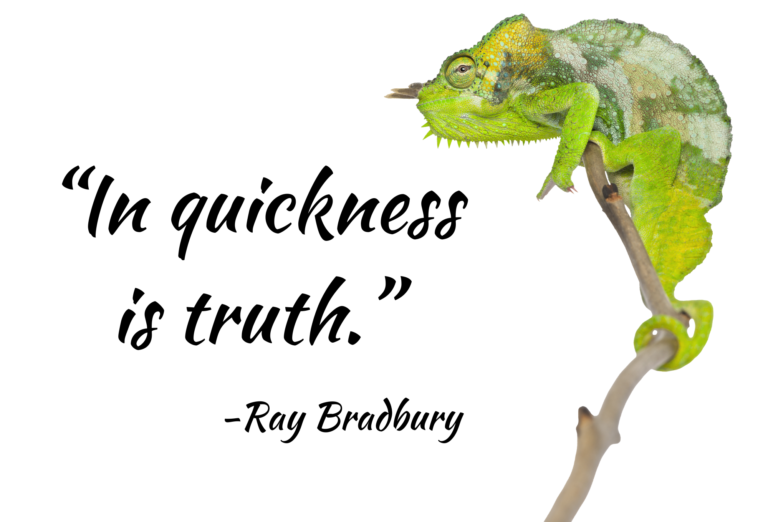
“The things you love and the things you hate make up who you are, your point of view, and essentially makes you care.”
-Ray Bradbury
He believed that what we care about makes us emotionally react through our art (which fuels your zest and gusto). He advises the writer to 1) be passionate about something and 2) know what it is you are passionate about. To do that, he says to write a list of your loves and hates to identify what, exactly, fuels your passion for life and by proxy your writing.
He insists the process of writing should be fun. Writers of the past, “children of the gods,” he claims, “knew fun in their work.”
Bradbury's Formula for Successful and Engaging Writing
- Write a list of what you love and hate
- by creating a Character with those loves and hates
- you will make the Character as Passionate as you are
Chapter 2: Run Fast, Stand Still
Write Fast and Break Things
Bradbuy says he wrote fast and revised slowly. So why write fast? To mine the subconscious. Bradbury firmly believed the subconscious was the source of his story ideas. The faster you write, the more honest and truthful you are.
Imitation vs Inspiration (aka How to Write a Great Story)
Like all writers before him, Bradbury came to writing out of love of reading (for him, Buck Rogers). But at some point he had to distinguish himself from them, to find his own voice in the world.
“I loved them, and they smothered me. I hadn’t learned how to look away and in the process look not at myself but at what went on behind my face.”
-Ray Bradbury
Continuing the Conversation: The Origins of Science Fiction
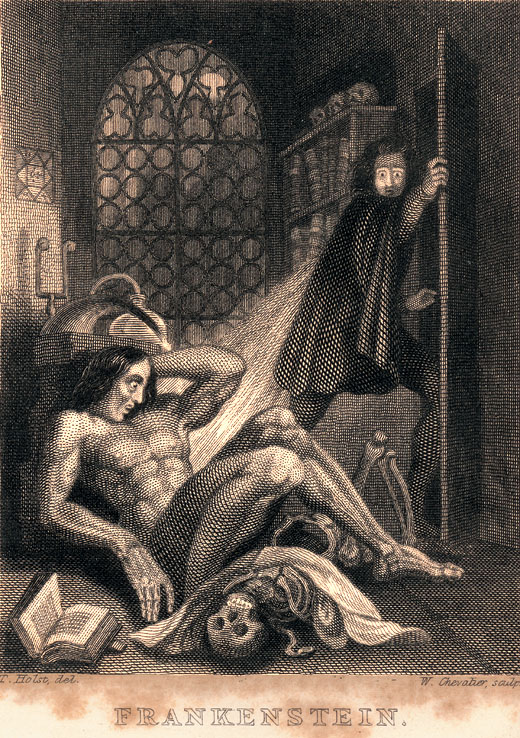
We think it’s important to note, Dear Reader, the title for the ‘inventor of science fiction’ is sometimes falsely attributed to Jules Verne or HG Wells. In prevailing literary and historical circles, Mary Shelley earns the title: the mother of science fiction. Indeed, her novel Frankenstein (1818) was the first of its kind (in novel form).
But did she really invent science fiction? Well, that depends on how one defines science fiction. Earlier writings suggest themes we commonly associate with science fiction, such as immortal life (Gilgamesh), post apocalyptic (Noah and the Flood), advanced technological weapons (Ramayana, 4th and 5th C. BCE), time travel (Mahabharata 8th and 9th C. BCE) traveling to outer space, alien contact, and even giant space spiders (Lucian of Samosata’s True History, 2nd C. BCE), and ancient technologies and robots (Arabian Nights 8th and 10th C. CE).
Behind my face, wha???
Although a story about a personal experience may make a good story, a great story is one that takes a personal experience and raises it to the level of the universal (aka, a story with a universal theme).
A Tribute to Stanislaw Lem
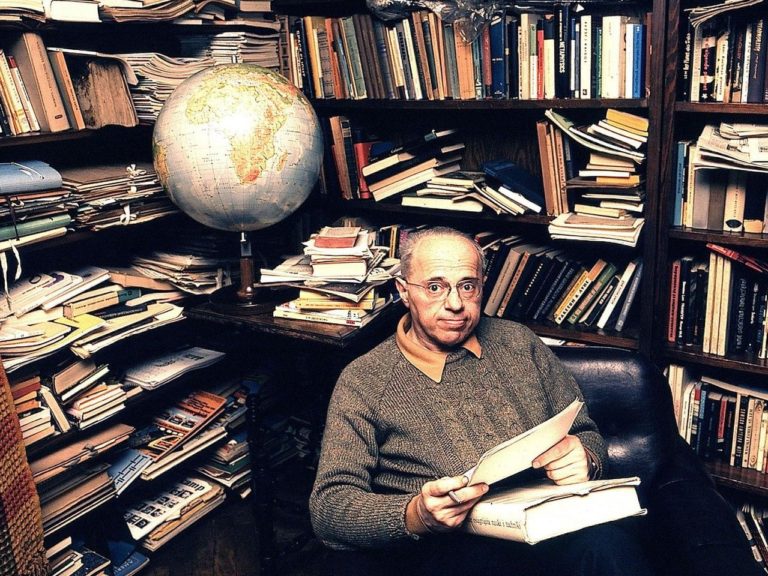
Stainslaw Lem, a polish science fiction author, was born in 1921 and died in 2006. He, according to Theodore Sturgeon–another sci-fi author–is considered the most read science fiction author in the world. Lem’s most famous novel, Solaris (1961), includes many of the themes, such as failed communication between alien species, he investigated in his essays, short stories, and novels. Writing in Stalinist Poland, the government had to approve all of his work before publication. Even under that restriction, he was quite prolific and wrote about various topics: futurism, philosophy, robotic intelligence, mad scientists etc. Although he was awarded an honorary Science Fiction Writers of America award in 1973, it came with some controversy. He claimed American science fiction lacked literary merit, which caused quite a stir in the SFWA community. The Polish Parliament even dedicated 2021 as Stanislaw Lem Year.


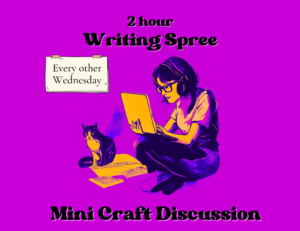





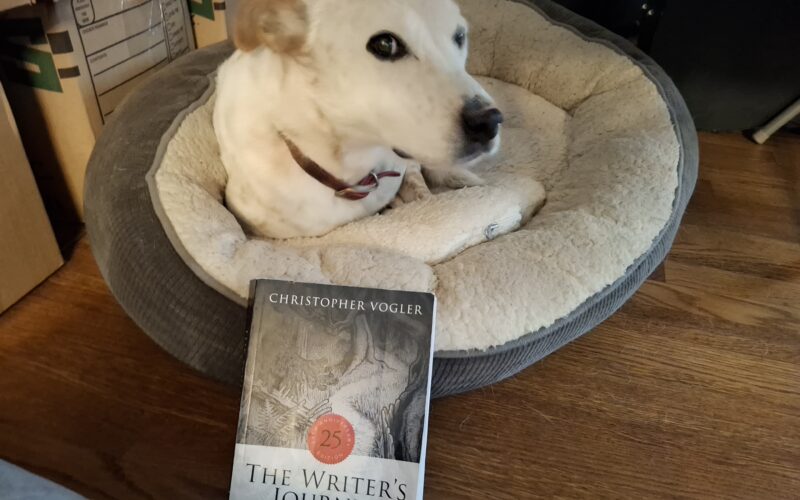
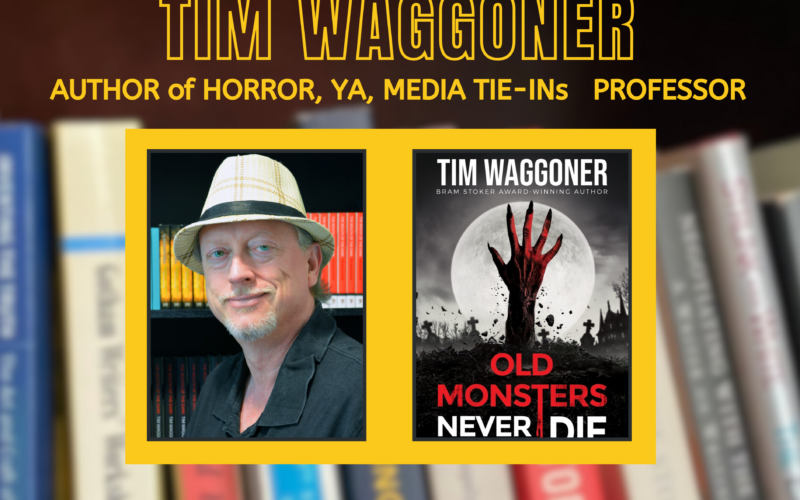



What’s Really Happening When AI Writes? An Interview with Bill Moore
We've been putting AI chatbots through creative writing challenges, but what are these systems actually doing when they write? In this episode, we bring in AI expert Bill Moore. Bill...